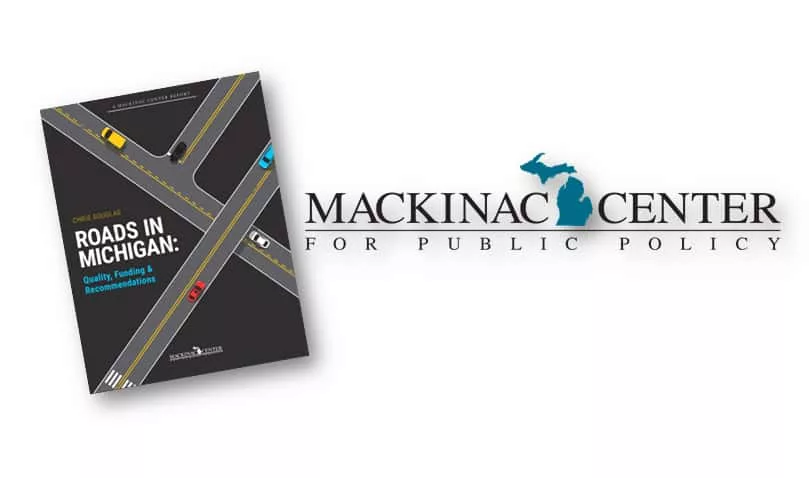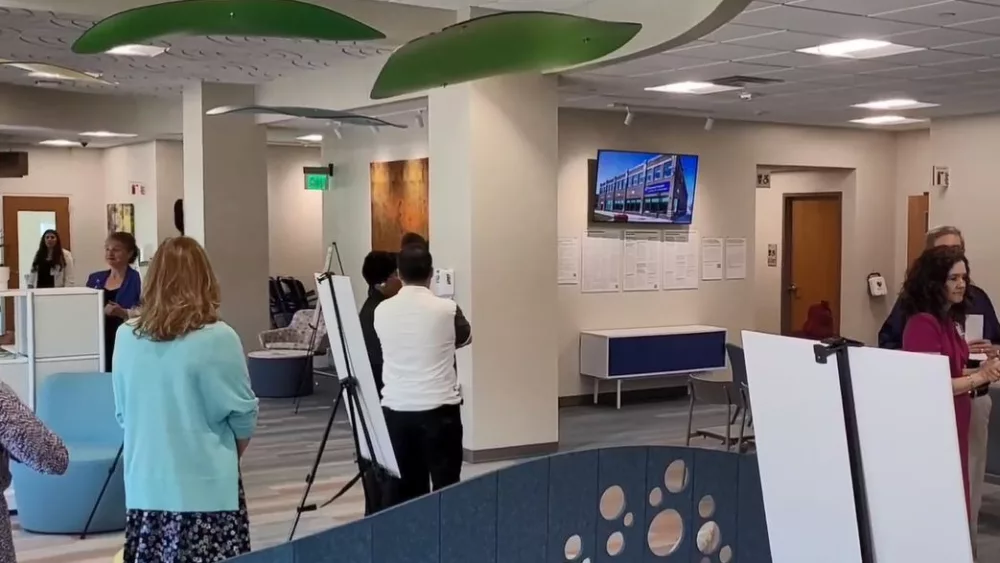Are Michigan’s roads and bridges in better shape than we’ve been led to believe? A new think tank study from the Mackinac Center for Public Policy not only wonders about that…they’ve gone to great lengths to peek behind the curtain at the entire road funding system and made some recommendations on how to do it all better.
Recognizing that the condition of Michigan’s roads and bridges have been a constant concern among residents of the Great Lakes State, the think tank says they are right to have concerns, arguing not only are roads essential to Michigan’s economy, moving $860 billion in freight annually, but they are a top concern of voters too. A newly released study from the Mackinac Center not only analyzes the quality of Michigan’s roads, it makes recommendations for how to improve them going forward.
The study, authored by Dr. Chris Douglas, Chair of the Economics Department at the University of Michigan-Flint and member of the Mackinac Center’s Board of Scholars, analyzes the most recent data on road quality, describes how roads are funded and makes recommendations for the future.
When examining the quality of the roads, the study found that overall, the conditions of Michigan’s roads may not be as bad as they appear or as they are commonly portrayed. However, the quality of the roads tends to vary depending on their type. For instance, nearly half of the city and village roads examined were in poor condition, and the same goes for county roads.
But 75-percent of trunkline roads, state roads that have an “I,” “US,” or “M” in the name, were ranked as being in fair or good condition. That’s important, considering those are the roads that carry nearly 75-percent of the state’s truck and commercial traffic and over half of the passenger traffic. The challenge for those roads is that they are projected to deteriorate in quality over the next several years, so continued investment is still needed.
The study also takes an in-depth look at how road funding, mostly generated by fuel taxes and vehicle registration fees, is distributed to the Michigan Department of Transportation and local governments. Douglas finds that there are several ways this funding mechanism could be improved, to better deliver resources where they’re needed most.
The study recommends that Michigan stick as closely as possible to a “user fee” model of funding for roads. Douglas argues that drivers should pay in taxes and fees an amount that’s roughly equivalent to the cost of repairing the damage that their vehicles cause the roads. Based on standard economic theory, that’s the most efficient and fair way to fund a public good like roads.
With that in mind, the study suggests the following:
- Collect more and better data about road conditions…
- Remove special exemptions for vehicle registration fees…
- Stop paying local governments for roads they do not maintain…
- Prioritize the trunkline system at the state level…
- Use sales tax from fuel purchases for roads…
- Pilot a Vehicle Miles Traveled tax program…
- Base vehicle registration fees on weight…
- Eliminate the ineffective Transportation Economic Development Fund and Comprehensive Transportation Fund…
- Help local governments pursue local road millages…
Douglas contends, “One could look at the current conditions of Michigan’s roads and see a half-empty glass or a half-full glass.” He adds, “But either way, Michigan policymakers should consider reforming its road funding mechanisms to make them more efficient and effective. This, combined with the increased investments the Legislature has already made and plans to continue, gives Michigan a good chance of meeting these important infrastructure needs into the future.”
You can view the complete study by clicking the link below.
The Mackinac Center for Public Policy is a nonpartisan, free-market think tank dedicated to improving the quality of life for all Michigan residents. Its policy experts develop solutions to state and local economic policy challenges based on fundamental principles of free markets, individual liberty, limited government and the rule of law.
Headquartered in Midland, the Mackinac Center has grown into one of the nation’s largest state-based think tanks since its founding in 1987. For more information, visit www.mackinac.org.
Here’s the link to the full report:






